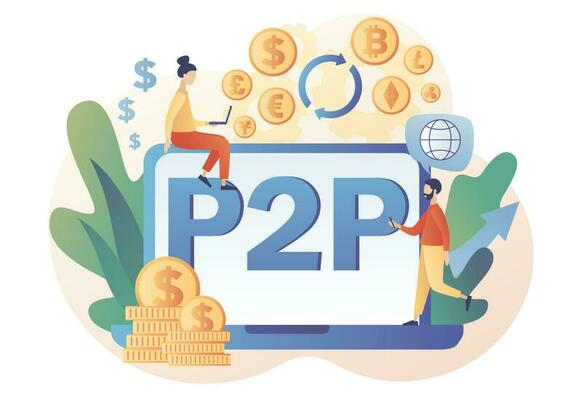It was a dream come true for Kristen Bell and Dax Shepard when they launched Hello Bello, a brand that promised affordable, eco-friendly baby products.
With exclusive shelf space at Walmart and Amazon and a social media following that most brands would envy, they seemed poised for long-term success. Or so they thought.
Despite raking in an impressive $180 million in revenue, Hello Bello recently faced the harsh reality of bankruptcy. What went wrong along the way? Could mobile app development have been their missing lifeline? Let’s dive into this cautionary tale to find out.
The Marketplace Challenge
Hello Bello seemed to have hit the jackpot when they secured exclusive deals with retail giants Amazon and Walmart.
Their products were not just on any shelf – they were on the most coveted shelves in the retail world. But as the saying goes, “Don’t put all your eggs in one basket.” When their sole supplier, Irving, decided to increase the cost of production by 18%, these retail behemoths only allowed a 10% price hike.
Stuck between a rock and a hard place, Hello Bello found themselves in a dilemma. Their entire brand was built on affordability, so raising prices was out of the question. The result? Margins so thin, they could cut glass.
The Ad Dilemma
In a time when digital presence is almost as important as the product itself, Hello Bello heavily relied on Facebook Ads to reach their target audience. But 2021 threw a curveball that no one saw coming—Apple’s major privacy policy change.
Apple’s iOS 14 update introduced App Tracking Transparency, a feature requiring apps to ask for user permission before tracking their data. This was unexpected for businesses relying on targeted advertising, like Hello Bello. The problem looked something like this –
- Limited Data: The new policy restricted the amount of user data available, making it difficult for Hello Bello to tailor their Facebook Ads as effectively as before.
- Cost Surge: With less precise targeting, the cost per acquisition likely increased, squeezing their already thin margins.
- Metric Mayhem: The change also affected the accuracy of ad performance metrics, making it harder to measure the ROI of their campaigns.
Hello Bello was already walking a tightrope with their reliance on third-party retailers. The Apple policy change was the wind that nearly knocked them off balance.
- Customer Drop: Almost overnight, the flow of new customers dwindled, exacerbating their existing challenges.
- Inventory Glut: With fewer new customers, Hello Bello found themselves with excess inventory, further straining their financial load.
While hindsight is 20/20, one can’t help but wonder if investing in their own mobile app or website could have provided a more stable platform for customer engagement, insulated from third-party policy changes. Let’s dive into that a little more.

The Probable Solution: A Mobile App as the Lifeline
In the midst of all these challenges, there’s a glimmer of hope that many businesses overlook—the power of having their own mobile app or website. We believe that for Hello Bello, this could have been a total game-changer. Here’s how:
The Power of Ownership
Owning a mobile app or website means you’re not at the mercy of third-party platforms. You set the rules, and you control the narrative.
- Data Control: With your own platform, you have complete control over customer data, allowing for more personalized and effective marketing strategies.
- Cost Efficiency: You’re not paying third-party fees or facing the risk of sudden policy changes that could skyrocket your costs.
- Brand Experience: An app or website allows you to create a unique user experience that aligns perfectly with your brand’s values and goals.
Community Building
One of the most underrated aspects of having your own platform is the ability to build a community. Reliable mobile app development can help with that too.
- Loyalty Programs: Reward your most loyal customers with points, discounts, or exclusive content.
- Direct Communication: You can use push notifications or in-app messages to keep your community updated with the latest news, offers, or product launches.
- User-Generated Content: Yu can encourage your community to share their own experiences, creating authentic marketing material and fostering a sense of belonging.
The Financial Upside
Let’s talk numbers. With your own platform developed by a mobile app development company, you can:
- Reduce Customer Acquisition Cost (CAC): Organic traffic to your app or website is essentially free.
- Increase Customer Lifetime Value (CLV): A dedicated platform allows for upselling and cross-selling opportunities, increasing the average spend per customer.
- Predictable Revenue: Subscriptions or in-app purchases can provide a steady revenue stream, making it easier to plan and allocate resources.
Our Final Verdict
Had Hello Bello invested in their own mobile app or website, they could have built a solid community of loyal customers, insulated from the whims of third-party platforms and policy changes.
It’s a lesson for all businesses—sometimes the best way to future-proof your brand is to take control of your own destiny – and for that matter, the platform.
Want some help with mobile app development to save your business from external typhoons? Your tech strategist partner, Segwitz, is just a call away.



